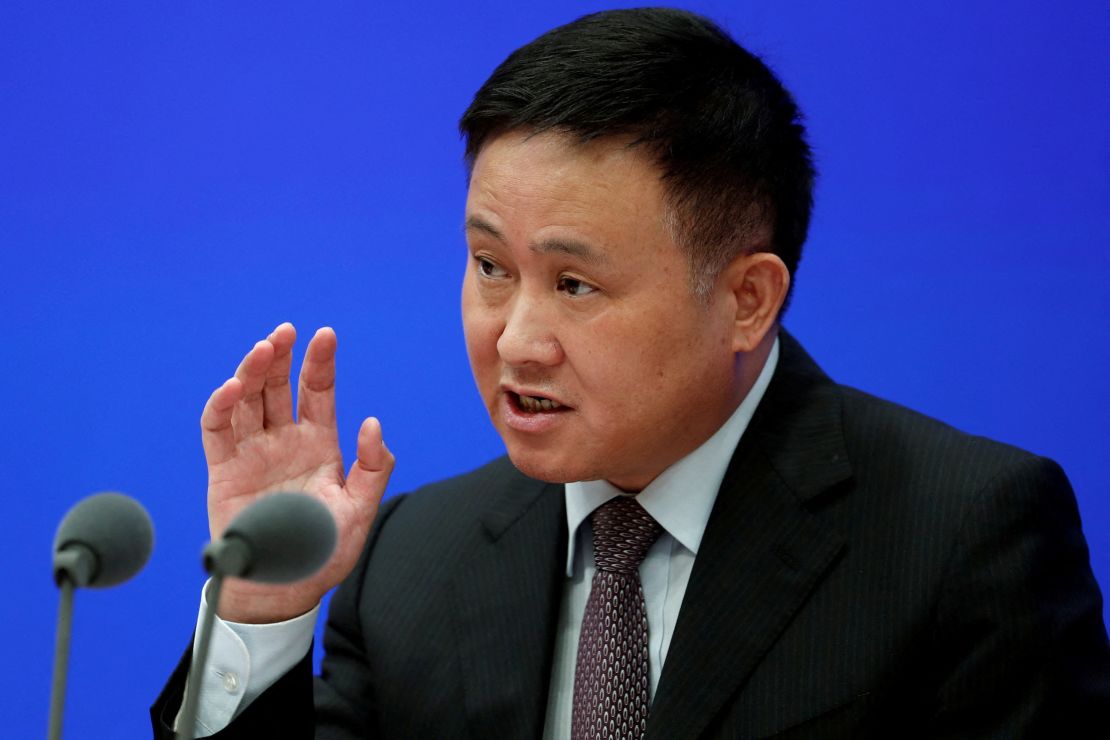It’s been a rollercoaster week for stocks trading in mainland China and Hong Kong.
Key market indexes plunged Monday, taking year-to-date losses to between 7% and 10% and extending a protracted $6 trillion-dollar rout that began in 2021.
Then, following a series of unusual interventions and announcement by worried Chinese officials, Hong Kong’s Hang Seng Index (HSI) rebounded to end the week up 4.2%, while the blue-chip Shanghai Shenzhen CSI300 logged a 2% weekly gain.
Does the rally mark an end to the country’s three-year long market meltdown? Analysts say not just yet. A slew of economic problems — including a record downturn in real estate, deflation, debt, a falling birthrate and shrinking work force — haven’t gone away, and they will limit longer term gains.
“Over the past 48 hours, China has announced a flurry of measures to support its economy and financials markets,” Nomura analysts said on Thursday. “We think these measures are likely to stabilize stock market sentiment and could potentially even support a relief rally in China stocks, given extremely low valuations, very light investor positioning, and technically oversold markets.”
China is facing a myriad of economic problems, including rising debt levels and worsening demographics. Beijing’s shift towards ideology-driven policies have also scared away foreign firms and investors and soured relations with the United States.
Without progress in tackling some of those deep-seated challenges, investors are likely to remain on the sidelines and markets will continue to drift.
“For a sustained rally in China stocks, we think China will need to address the core of these concerns (predominantly property sector issues and US-China tensions),” the analysts added.
The measures Beijing took this week to boost the stock market were surprising because they mark a rapid turnaround from the previous week, when Premier Li Qiang dashed hopes of major stimulus measures in a speech in Davos, Switzerland. But that was before shares tanked.
On Tuesday, Bloomberg reported that Chinese authorities were considering ordering state-owned enterprises to use money held in offshore accounts to buy shares worth as much as 2 trillion yuan ($282 billion).
A day later, in an unprecedented move, regulators said they were considering evaluating the performance of the heads of state-owned companies based on their stock market value.
The move was aimed at guiding executives “to pay more attention” to their companies’ share prices and to use “methods such as increasing holdings and share buybacks to stabilize market expectations,” a spokesperson for the State-owned Assets Supervision and Administration Commission told reporters in Beijing.
On the same day, Li Yunze, director of the recently-established National Administration of Financial Regulation (NAFR), vowed at an international financial conference in Hong Kong to further open its $64 trillion financial industry to international investors.

Hours later, Pan Gongsheng, the governor of the People’s Bank of China, unexpectedly announced that the central bank would slash the amount of cash banks are required to hold as reserves, which could provide one trillion yuan ($141 billion) in long-term liquidity to the economy.
“All these measures were unexpected and likely prompted by the significant rout seen in stock markets recently,” Nomura analysts said, adding that stronger actions were likely to follow.
The measures worked. By the end of Thursday, the HSI had risen for three days in a row, up a combined 8.4%. The CSI300 gained 4% during the same period.
In the 7 days to January 24, exchange-traded funds (ETFs) tracking Chinese stocks recorded large inflows of $12.6 billion, according to a Citi survey of global fund managers. Over the previous week, $2.3 billion flowed out of those funds.
Beijing’s determination to support the equity markets has been successful and the gains could continue, analysts from Enodo Economics said Friday.
“An equity upturn could run a few quarters, especially if [it] leads to foreign investors reassessing their severely underweight China position,” they said.
Still, investors have been fleeing Chinese stocks over a much longer period because they are worried about the country’s economic prospects.
As of January, mainland China had seen six months of consecutive outflows, with foreign institutional investors selling a total of $30 billion of shares listed on mainland Chinese exchanges, a HSBC survey showed on Friday.
“We do not think the market rescue package [in recent days] can change the economic fundamental, that is, weak aggregate demand,” said Raymond Yeung, chief economist for Greater China at ANZ Research.
Deflation is haunting the Chinese economy, which has grappled with weak prices for many months. The country is facing the prospect of a vicious cycle whereby lower demand leads to lower investment, lower production and lower income, thus causing even lower demand.
“A wholesale reflation strategy like the one [at] the end of 2015 is required to avert assert price deflation,” Yeung said, referring to a series of stimulus measures rolled out over several months to support the economy. It included a number of initiatives aimed at reviving home buying.
He called the rescue measures announced this week “piecemeal” and “reactive,” saying they would not be sufficient to fix the economic problems in the longer term.